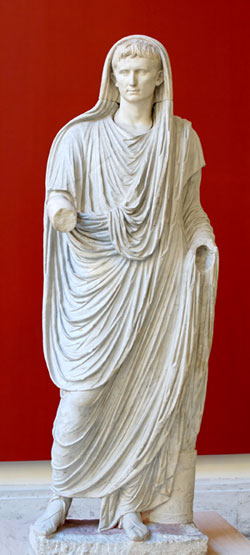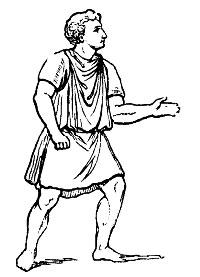
Source: August Labicana Massimo, Jastrow, Wikimedia
The citizens of Rome were divided into 2 classes: patricians and plebeians.

Source: August Labicana Massimo, Jastrow, Wikimedia
Patricians were wealthy landowners, the nobility or aristocracy of Rome. They made up 10% of Rome's population but held the majority of power in the Roman Republic during the beginnings of the republic.

Source: Roman worker dressed in a tunic, after a relief on Trajan's Column, Wikimedia
Plebeians were the craftsmen, peasants, and small landowners. As a side note, women and slaves were not considered citizens of Roman society and therefore were not able to vote or hold public office.
Who led these patricians and plebeians? Instead of having a monarchy, Rome's republic was led by two consuls. Consuls had to be former members of the Senate and were elected by the Century Assembly to a one year term only. Consuls couldn't be reelected until 10 years had passed. Both consuls had to agree before a decision could be made. They carried out the laws of Rome and were in charge of the military. In time of war, it was possible for 1 consul to be chosen to lead Rome as a dictator, but only for a period of 6 months at a time.
Magistrates were officials that were elected by patricians and plebeians into various roles, depending upon the power. For example, the two consuls were high magistrates that had the power to check each other's power to avoid tyranny. There were lower magistrates such as censors that had the power to fine a citizen or take away his property. Once a magistrate finished serving his term in office, he usually ended up being appointed to the Senate.
The legislative or law-making body of the republic was made up of three groups; the Senate and the Assemblies. Senators were patricians who were not elected to office but chosen by the consuls. Once chosen, they were appointed for life. The Senate's job was to control the finances of Rome as well as foreign policy. At the beginning of the republic, only patricians could be elected to public office.